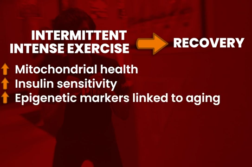NASHVILLE, Tenn. (Ivanhoe Newswire) –Ninety percent of cancer deaths are due to late-stage cancer that has metastasized. But a team of researchers believe they have found a way to kill spreading cancer cells and increase survival. Martie Salt has the details.
For country singer Wade Hayes, music is his life.
But a few years ago, the music almost stopped when he was suffering from severe abdominal pain and bleeding.
Hayes told Ivanhoe, “I had no idea what was happening. I thought I had ingested some glass or something.”
Wade went to his doctor.
“Sure enough I had a tumor, from what I was told about it, I guess the size of an orange in my large intestine,” Hayes said.
It was stage four colon cancer. Surgery got rid of the cancer, but it came back a year later.
“There is mounting evidence that any therapeutic interventions, whether it’s surgery, a needle biopsy, chemotherapy, or radiotherapy causes the release of cancer cells into the bloodstream,” Michael King, PhD, Department Chair and Wilson Professor of Biomedical Engineering at Vanderbilt University, said.
Michael King and his team have found an approach to stop those cancer cells in their tracks. Using blood samples from metastatic cancer patients, the team injected nanoparticles coated with proteins. These nanoparticles attach to white blood cells and … in the study, the viable cancer cells were cleared out within two hours of the injection.
“We believe that this could benefit patients who are even at a very late stage,” King continued.
Like Wade, who before this study was cancer-free for over six years. Now he works to promote new research. He believes many more people like him might be able to survive despite grim odds.
The team has also done a test with mice using this approach for triple negative breast cancer, one of the toughest breast cancers to treat, and found that it was very effective. Their next step is to start a human clinical trial within the next two years.
Contributors to this news report include: Milvionne Chery, Producer; Roque Correa, Videographer and Editor.
To receive a free weekly e-mail on Medical Breakthroughs from Ivanhoe, sign up at: http://www.ivanhoe.com/ftk
MEDICAL BREAKTHROUGHS
RESEARCH SUMMARY
TOPIC: KNOCKING OUT CANCER IN LATE STAGES
REPORT: MB #4691
BACKGROUND: Stage IV of any cancer means that the cancer has spread to other parts of the body. In particular, there is a 14 percent chance of survival in a five-year span. Living with stage IV cancer comes with side effects, including bulging of the liver which can cause discomfort and pain. Acupuncture and the right medicine can help ease that pain. Also, even if you do not feel hungry, try to eat to keep your energy up. Smaller meals and snacks, along with food with high protein and calorie counts allow you to get that extra boost.
(Source: https://www.webmd.com/colorectal-cancer/colon-cancer-liver-metastasis-side-effects#1 https://www.healthline.com/health/beating-stage-4-breast-cancer-it-possible)
TREATMENT: Options include surgery which would involve removing a part of the colon near the lymph nodes. They would also looking to remove other areas of the tissue where the cancer has spread. Most doctors recommend chemotherapy as well for either before or after surgery. If the cells are too large, then chemotherapy may be used to shrink the tumor. Radiation therapy is also an option which can help reduce symptoms; it will not cure the cancer, but it could shrink it. If the cancer has spread to the liver, doctors also recommend a hepatic artery infusion. This is a regional chemotherapy that involves delivering the drug directly into the artery in the liver. This treatment will not harm the healthy liver cells and could destroy cancer cells. If the tumors are under four centimeters, patients may also opt to have an ablation, which uses microwaves, radio frequencies or alcohol to target and kill cancer cells.
(Source: https://www.medicalnewstoday.com/articles/325230.php#treatments)
LOOKING AHEAD: The MATCH Screening Trial is looking at how well treatment directed by genetic testing works in patients who have solid tumors that have progressed after one line of standard treatment. The trial is in phase 2. Research is also in phase 3 to determine how well vitamin D3 works with standard chemotherapy and bevacizumab to treat stage IV colorectal cancer. Dr. Michael King and his team are finishing another study that discovered for the first time how cancer cells sense the fluid forces in blood flow, which is what sensitizes them to apoptosis, the death of cells that occurs naturally in the body.
(Source: https://www.cancer.gov/about-cancer/treatment/clinical-trials/search/v?id=NCI-2019-01034&r=1 and Michael King, MD)
FOR MORE INFORMATION ON THIS REPORT, PLEASE CONTACT:
Michael R. King
Spencer Turney
If this story or any other Ivanhoe story has impacted your life or prompted you or someone you know to seek or change treatments, please let us know by contacting Marjorie Bekaert Thomas at mthomas@ivanhoe.com



